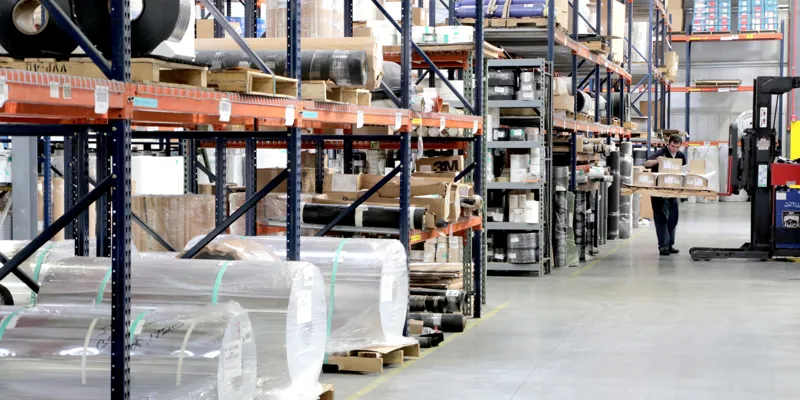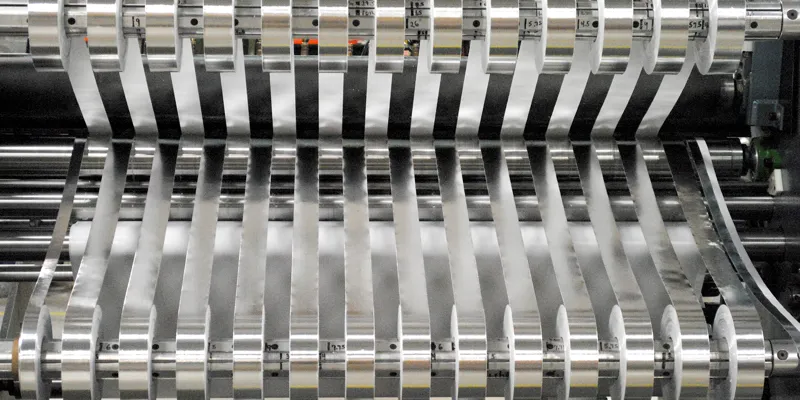
Simplifying Your Supply Chain A Case Study
Engineers rely on die cutting experts to create a myriad of die cut parts used to seal, insulate, sound deaden, fasten and assemble products ranging from medical devices to power plants. Unfortunately die cutting has historically been viewed as a simple “me too” industry where the players compete on price and “if you’ve seen one, you’ve seen them all”. But with recent advances in die cutting technologies, resource planning systems, logistics and automated assembly, a new breed of die cutter is emerging that can simplify your supply chain and offer value normally not associated in the die cutting realm. In this case study, we will share two scenarios where JBC Technologies provided value that eliminated additional time and cost consequences that the customers would have incurred otherwise.
Often die cutting can be very simple and as a result, it is not unusual to have a box of die cut parts arrive on time, with zero defects and at a fair price. The customer is happy and they get exactly what they wanted. They can use the parts in their assembly process precisely how they had intended. This situation is not that unusual and there are many customers and die cut vendors patting each other on the back at how well they worked together to create and deliver exactly what the customer wanted. But sometimes giving the customer exactly what they want is not the best solution.
Case 1: Slit Material Rolls
One specific example was when a customer wanted a slit material provided in fifty foot rolls. When the conversation expanded into what they were intending to accomplish in their assembly process, it became apparent that longer rolls would be a significant benefit. But when asked why they only wanted 50 foot lengths the customer insisted that it was not possible for them to handle longer rolls, nor was the specific material available in longer lengths.

All the other suppliers were quoting the same construction based on the same constraints defined by the customer’s engineers. With an appreciation for the possible time savings on the customer’s plant floor, JBC Technologies led an R&D program in concert with the customer’s product and manufacturing engineers. The product engineers worked to evaluate and approve an alternative material recommended by JBC that could be produced in lengths up to 300 feet.

The next roadblock was encountered at the customer’s assembly machine and material properties that prohibited it from being spooled. This was resolved with some basic modifications of the customer’s assembly machine and JBC designed packaging system that protected the material and kept it properly wound, which integrated directly onto the customer’s assembly machine. The result was a slit product safely delivered and quickly deployed at the customer’s point of use in 300 foot lengths at the same price point as the shorter rolls quoted by all the other suppliers.

The concerted effort led by JBC Technologies resulted in a 75% reduction in daily roll changes with zero defects and minimal customer handling that lasted for several years during the life of program. This is a direct result of JBC working with the customer to overcome the conventional constraints associated with the customer’s previous experience.
Case 2: Die Cut Foam Washers
The next case involves logistical consequences and costs associated with a long supply chain involving a tedious and manual assembly process of a small die cut foam washer. After the customer received a box of tiny foam washers, parts were inspected, received, repacked and shipped to another supplier for assembly to a small mating part. People would manually pick up and place the plastic part into a fixture. They would then pick up a foam washer and remove the paper backing to expose the adhesive. Finally the foam washer would be placed and pressed onto the plastic part. The assembly was then visually inspected and placed into a box. Volumes were too low for the customer to justify investment of their standard proprietary automation system. Overall, the customer was pleased and the assembly supplier was performing as expected.

Capacity fluctuations were addressed by increasing or decreasing the number of operators. Quality was generally good and sporadic assembly errors were normal for the manual assembly process they had been using for years. The customer recognized the benefits of automation but could not justify the expense. Although the program was running smoothly, JBC Technologies recognized the customer value proposition of an automated assembly system. Having designed and built other automation systems, JBC proposed a flexible concept that it could use to assemble a family of similar parts. The flexibility would allow JBC to spread its automation investment, making the program feasible. The customer approved the concept and committed to allow JBC to assemble the products pending final prove out. With its in-house automation team, JBC designed and built a flexible system that ultimately surpassed customer validation requirements.

By allowing JBC to automate and bring the assembly in-house, the customer not only realized tangible savings of the assembly process, but it also significantly reduced its total cost of ownership (TOC). Administrative costs were reduced via a simplified supply chain. Response time to product demand surges was reduced. And the overall quality of their assembled product improved.
Process and effciency improvements are possible when both customer and the “right” die cutter have a firm grasp of the entire process from raw material to point of use. A die cutter that cares about the success of their customer will ask questions and offer innovative solutions that envelop the entire supply path of the die cut part. The innovation needs to be driven by both parties, the customer and die cutter. Each one should challenge the other, questioning the status quo by looking into their respective technological tool boxes to create new ways to drive effciency. It’s not easy, but like anything it requires commitment and hard work fueled by motivation for change.
In today’s dynamic manufacturing environment, complacency is often analogous to ineffciency. Challenge your die cutter and if you think they are not keeping up with your needs, there are plenty others standing ready, willing and able to help you eliminate pain points and improve effciency.

